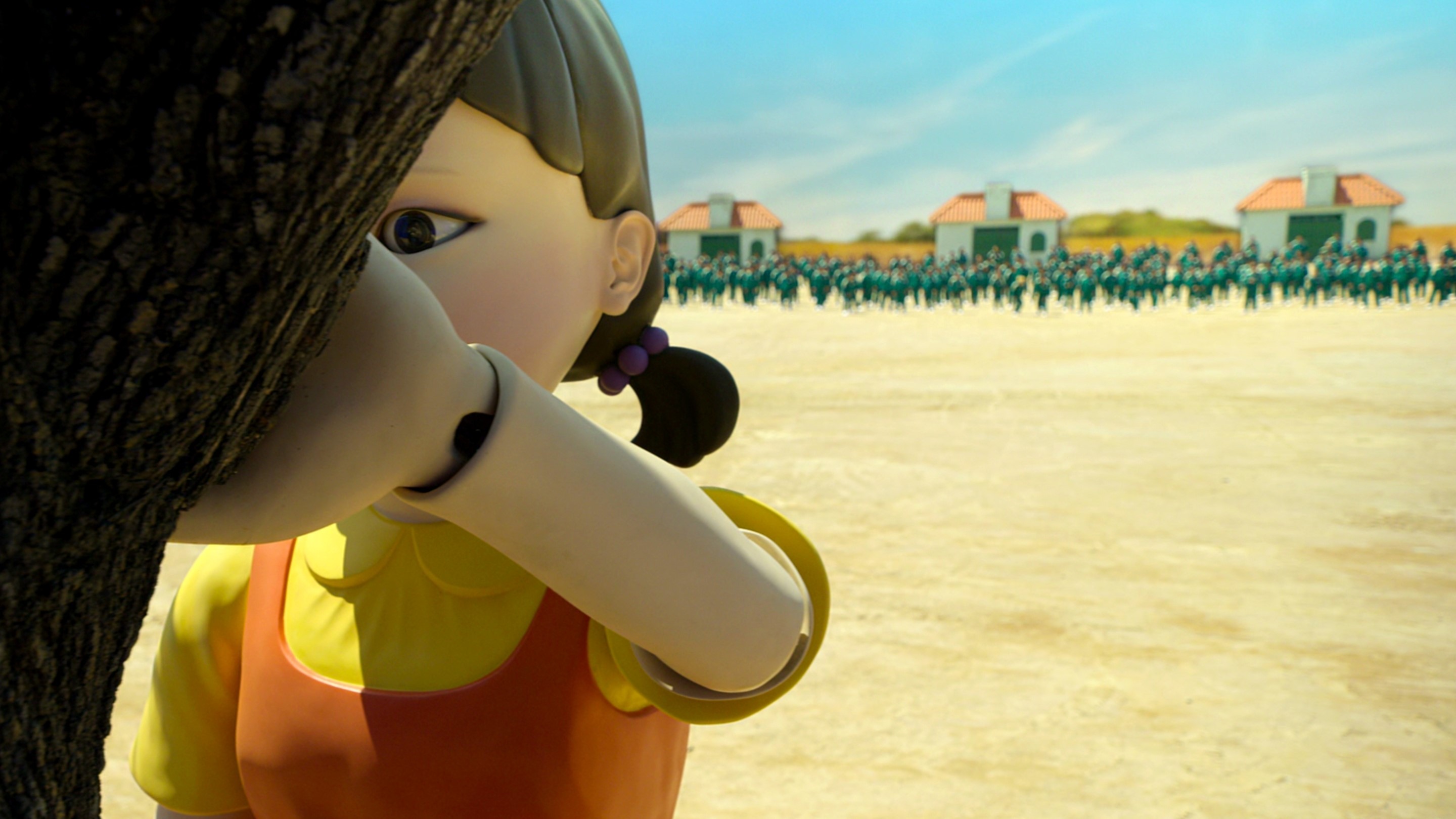Netflix has turned to scare tactics in its latest marketing stunt for Korean smash hit Squid Game by installing a replica of the show’s murderous robot doll at a shopping mall in the Philippines.
The 10-foot-tall creation has been placed outside the Robinsons Galleria mall in Quezon City, Philippines, to 'monitor' an adjacent crosswalk. Its positioning is an homage to the premise of the show’s first episode, ‘Red Light, Green Light’, which sees an animatronic doll target and kill any players who move when not permitted to do so.
You can check out the replica doll in action via the tweet below – and yes, she does actually sing the eerie “Red Light, Green Light, 1-2-3” jingle, swivelling her head around and flashing LED-red eyes at jaywalkers. Creepy.
Better play by the rules because she's always watching. Will you make it past the first round of Squid Game? 🦑 pic.twitter.com/qvTlHddqsrSeptember 22, 2021
- Which is the best streaming service in 2021?
- The best Netflix shows to stream right now
- Netflix launches a Spotify-like free tier – but only in Kenya
The actual doll used in the series, pictured below, was recently put on display at the Jincheon Carriage Museum Adventure Village in South Korea, though it has since been put into storage.

Squid Game, which follows a group of civilians invited to risk their lives in a mysterious survival game, is currently the most-watched Netflix show in several regions, including the US and UK, and is on track to dethrone Bridgerton as the most popular series in the streamer’s history.
As reported by Variety, Ted Sarandos, Netflix’s co-CEO and chief content officer, said “we did not see that coming, in terms of [Squid Game’s] global popularity.”
Before it claims the title of the streamer’s biggest ever show, the series will also almost definitely rank as its most successful non-English series, outperforming Spanish thriller Money Heist for the number of households reached worldwide.
Squid Game comes from the mind of Korean writer and director Hwang Dong-hyuk, who has found commercial success in his home country through a series of feature-length movies, though the show marks the creator’s first foray into television.
Incidentally, Hwang told Variety that he first conceived the idea for Squid Game back in 2008 as a film – before making any of his other movies – but Korean studios didn’t take to its violent and unrealistic premise.
Netflix announced in September 2019 that it would produce Hwang's concept work as an original series, initially titled Round Six – the rest, as they say, is history.
No comments:
Post a Comment